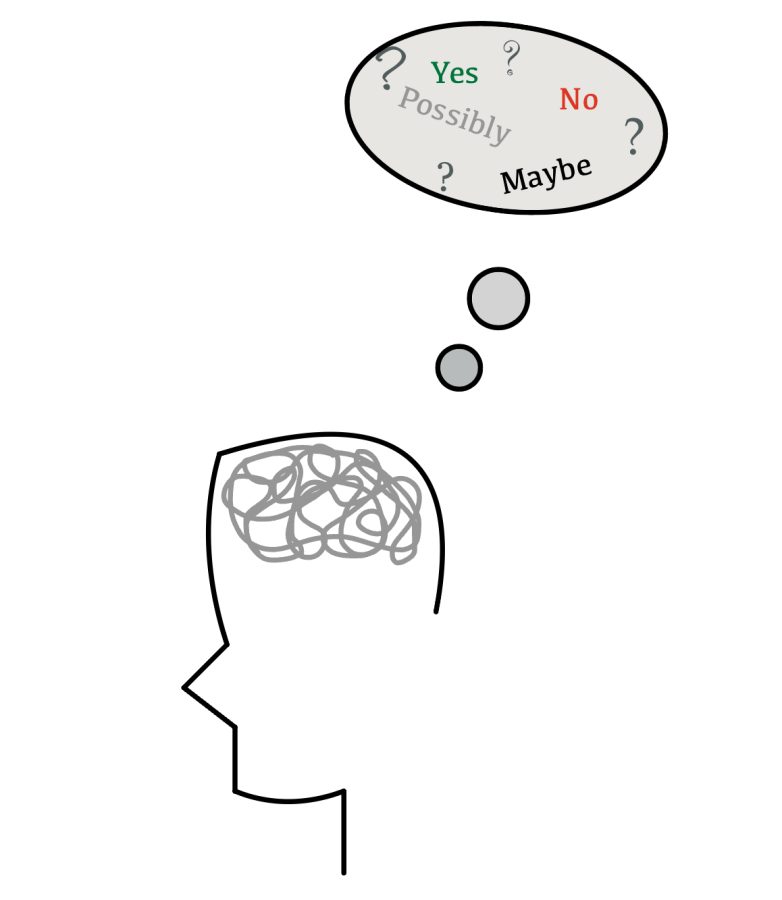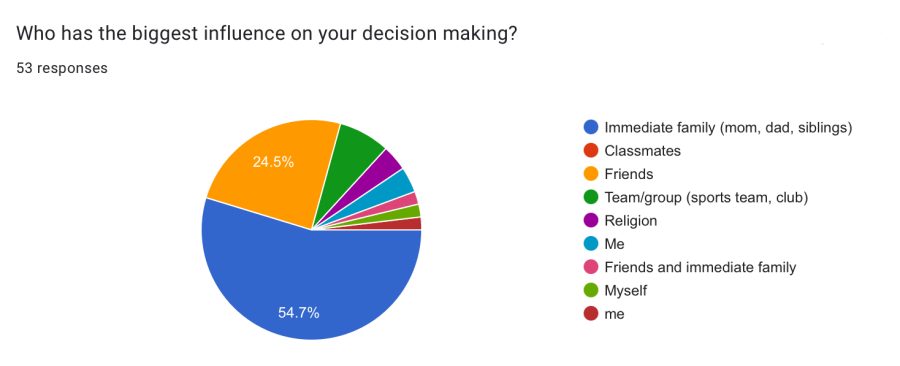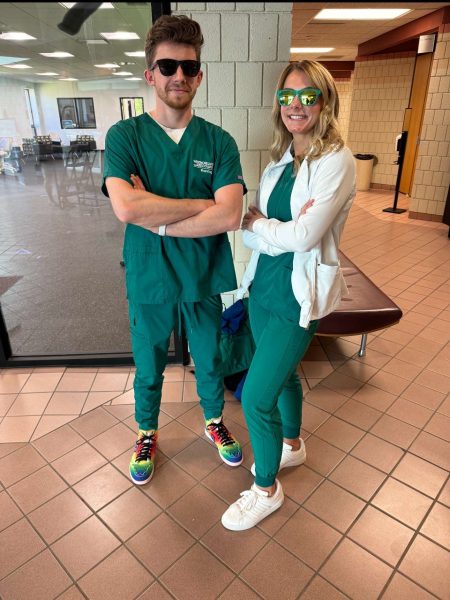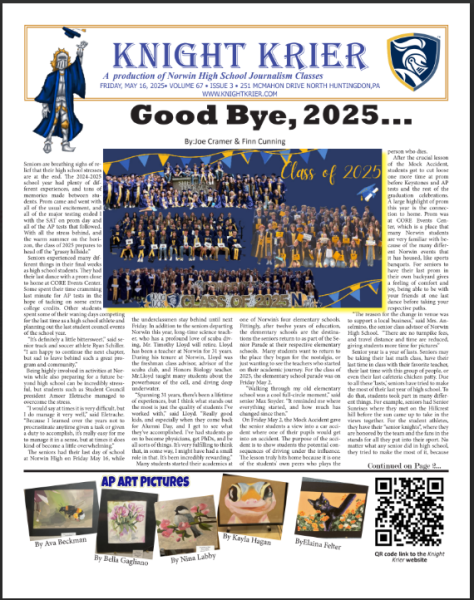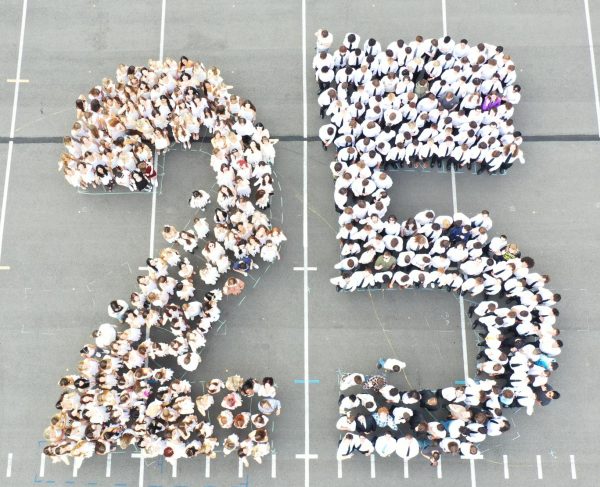Answer the question already
How teens make decisions based on peer pressure and judgment.
Imagine you are out with some of your friends and one of them tells you that they do not like your shirt. In your head, you start to think of how the shirt looks and how their opinion now affects the way you dress and can start to affect more. You try not to tell your friend that you actually like the shirt and try not to be affected by her opinion. This is an example of how others’ judgments affect your own thoughts.
Peer judgment is something that affects many kids in high school, including teenagers here at Norwin High School. Family, friends, religion, classmates, sports or clubs that a person is involved in can shape his or her opinions and decisions. In high school, teens are bombarded with judgments daily. How one deals with such judgements is up to each person.
“We make snap judgments of others based not only on their facial appearance, but also on our pre-existing beliefs about how others’ personalities work, finds a new study by a team of psychology researchers,” said psychology researchers from NYU in the article, How We Judge Personality from Faces Depends on Our Pre-Existing Beliefs About How Personality Works.
When teens first meet someone, they are quick to judge. Teens often judge others by facial expressions or appearances, their own previous beliefs, a person’s behavior, or even gossip and information from their friends.
According to a recent poll featuring Norwin High School students, 56 percent of students said: “Yes, I do [make judgments] but it is human instinct” when asked whether they judge or make assumptions about people.
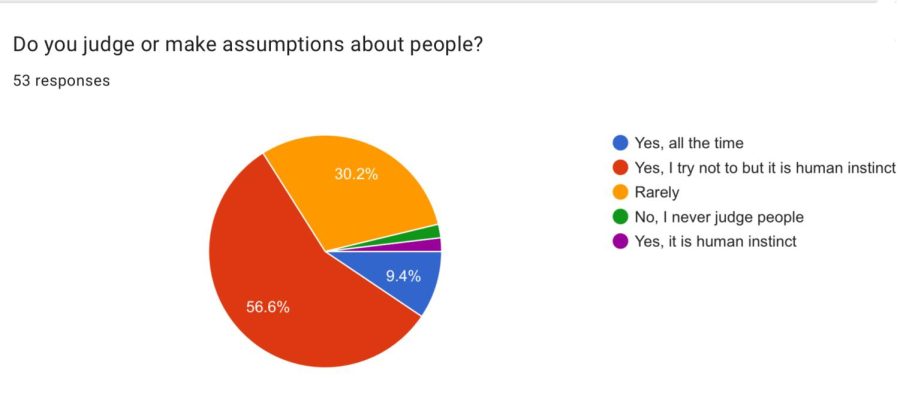
This poll result indicates that more than half of students at Norwin High School judge and make assumptions about others. However, making judgments about others without actually knowing that person can lead to misconceptions and false assumptions about that person.
Oftentimes, judgment can affect a student’s behavior and possibly his or her own opinions.
“Teens are very quick and accurate in making judgments and decisions on their own and in situations where they have time to think,” said Dr. B.J. Casey from the Weill Medical College of Cornell University. “However, when they have to make decisions in the heat of the moment or in social situations, their decisions are often influenced by external factors like peers.”
Peer pressure can influence students’ decisions, behaviors, and actions. Peers are people that you surround yourself with or that can go to your school or do similar activities/ sports as you. Peer pressure can cause a person to do something that they would not normally do or think to do. When kids in high school are around their friends or peers, they can be influenced by those people. Most of the time, this influence is negative, but it could be positive.
According to the website Heads up, “We are all influenced by our peers, both negatively and positively, at any age.”
People of all ages are influenced by their peers. The main ages that experience peer pressure are 14 through 19. The most common places that peer pressure occurs are on social media, within friend groups, at school, and sometimes at home. The negative influence of peers can lead to a decrease in self confidence and possibly lead to poor academic performance.
Peer pressure can also cause kids to do something that can negatively affect their health. A positive of peer pressure can include working well academically because your surrounding peers are committed to doing well in school. A friend can also push you to study to achieve better grades.
According to the website parent and teen.com, “Listening to their instincts, focusing on their strengths, talking through issues, and learning relaxation exercises, are all examples of different coping strategies that can help manage stress.”
All of these examples are coping strategies to help teens deal with peer pressure. Dealing with peer pressure can be difficult but those experiencing it can possibly talk to an adult about what they are feeling or talk to the person that is peer pressuring. To avoid peer pressure, teens need to make smart decisions that will be beneficial to their future.
“In many ways, I think teens rely on others to make tough decisions because they have to,” said English teacher and yearbook adviser, Mrs. Angela Hufnagel. “It’s hard to trust yourself at this age, and I think teens truly turn to others for tough decisions in hopes to make the ‘right’ decision.”
When teens make tough decisions, they rely on others for support in that decision and look to others for help. At the teen age, it is difficult to make a decision based only on what you as an individual thinks because we are constantly worried what others think.
According to a recent poll answered by Norwin High School students, 54 percent of students choose that immediate family had the most impact on their own decisions.
Teens are more influenced in decision making by their close family because family can help shape decisions. When teens make tough decisions it is good to imagine if this decision would positively impact your future or negatively impact your future. Talking through a tough decision with family members or friends can help come to a correct decision.
“I make decisions in my life by doing what is right because the things that are right are already set in stone. What other people think I should do are usually opinions, and those opinions may not always be the right thing to do,” said Sienna DeJesus (9).
Teens all deal with judgment, peer pressure, and make decisions in their own ways.
“Most teenagers, based on my observations as a teacher and as a mom, make many of their decisions based on their needs to please others rather than based on their own needs and goals,” said Mrs. Hufnagel.


